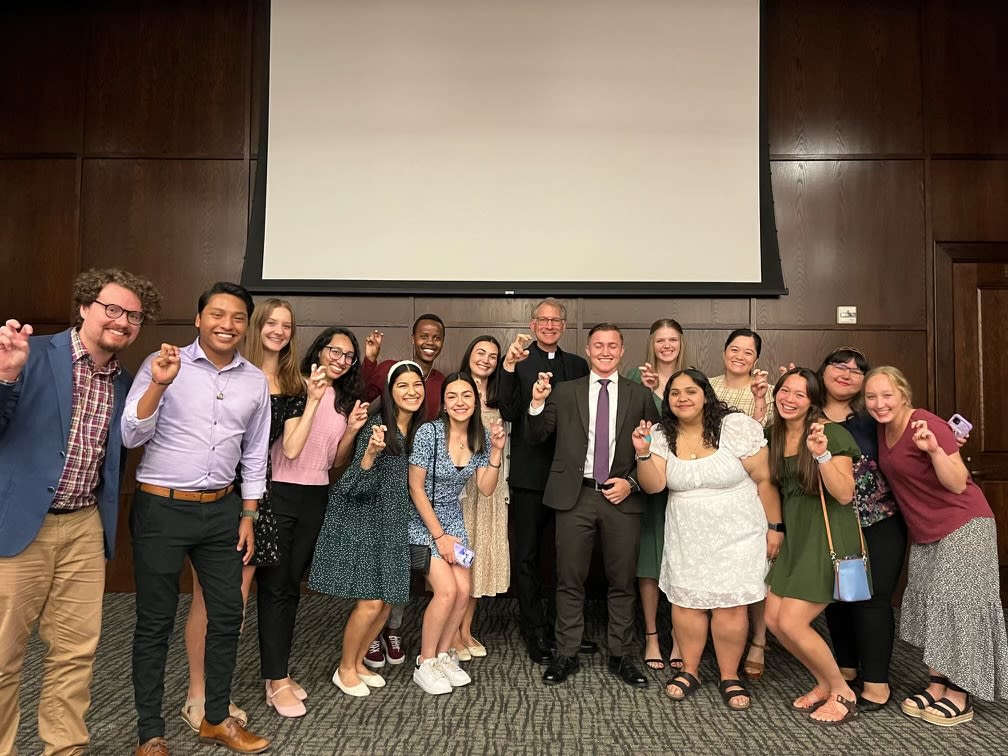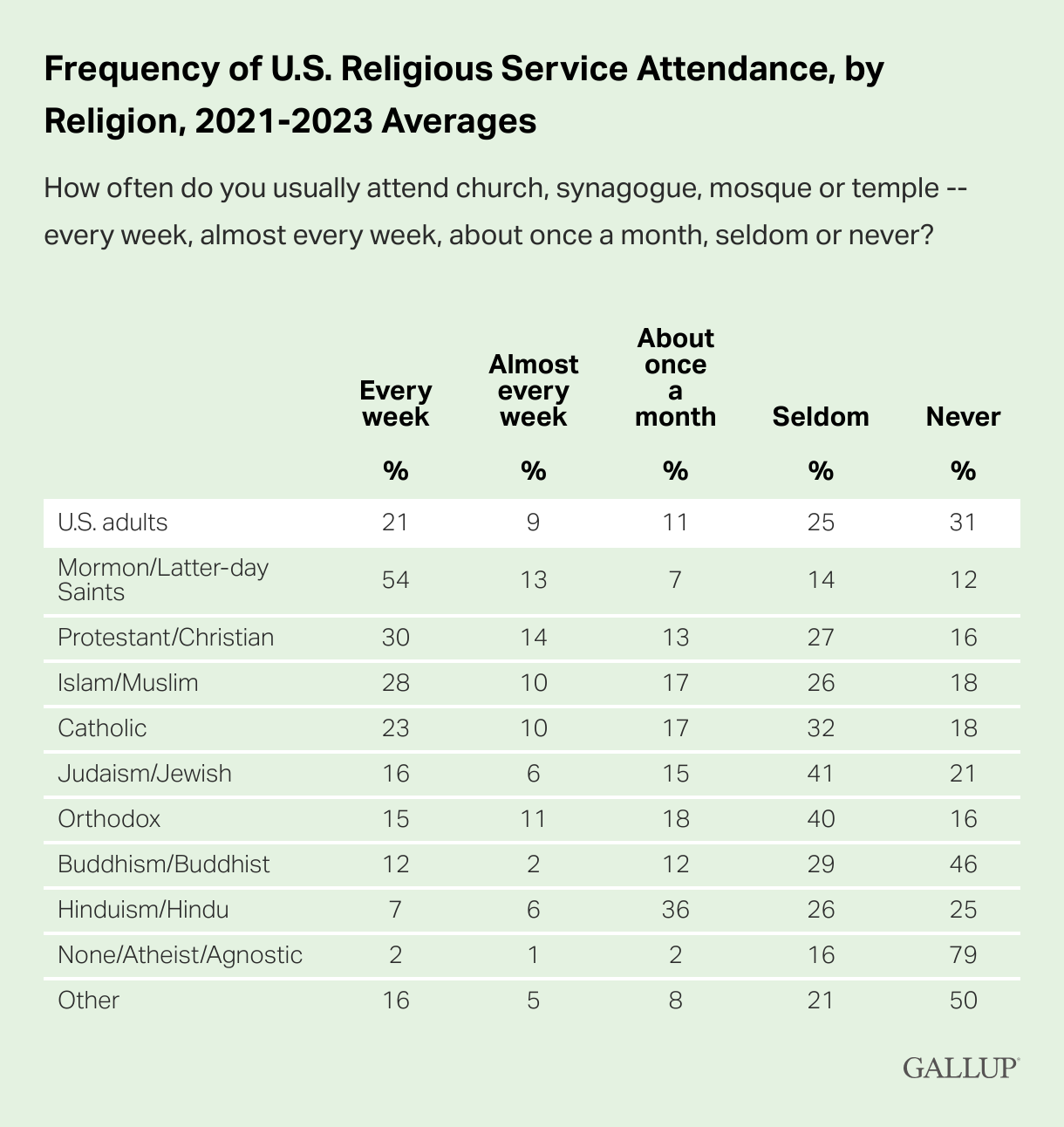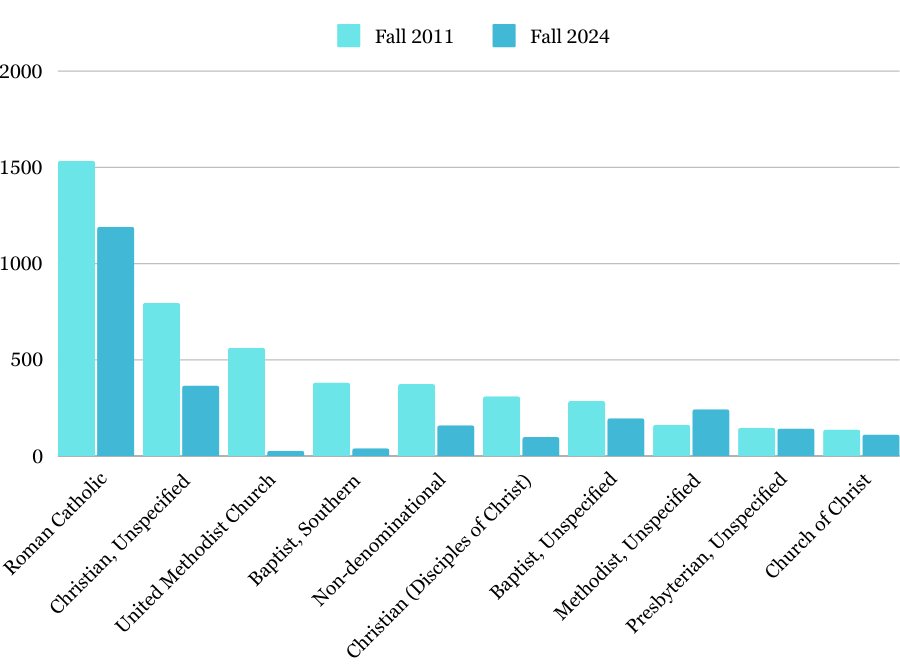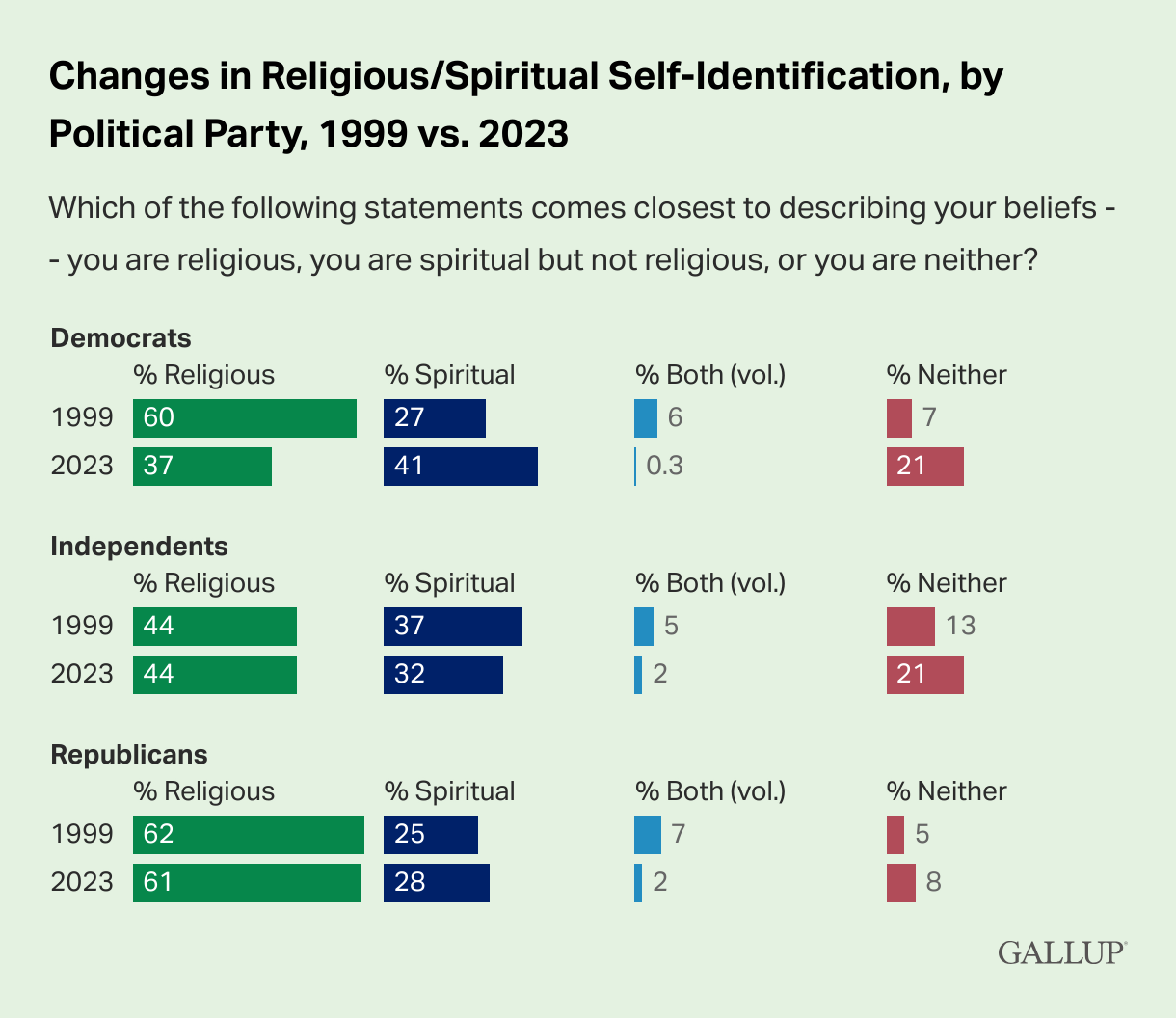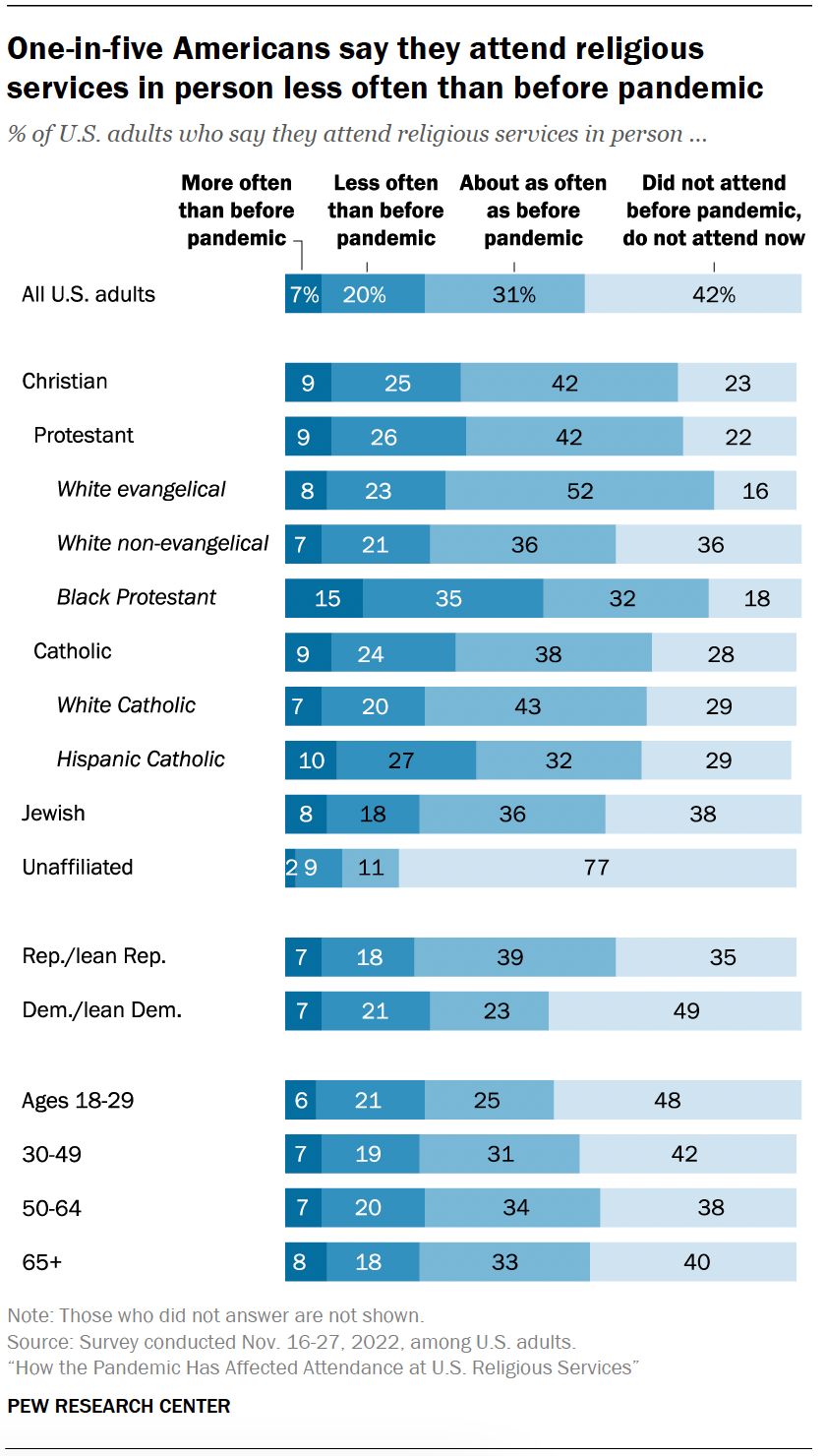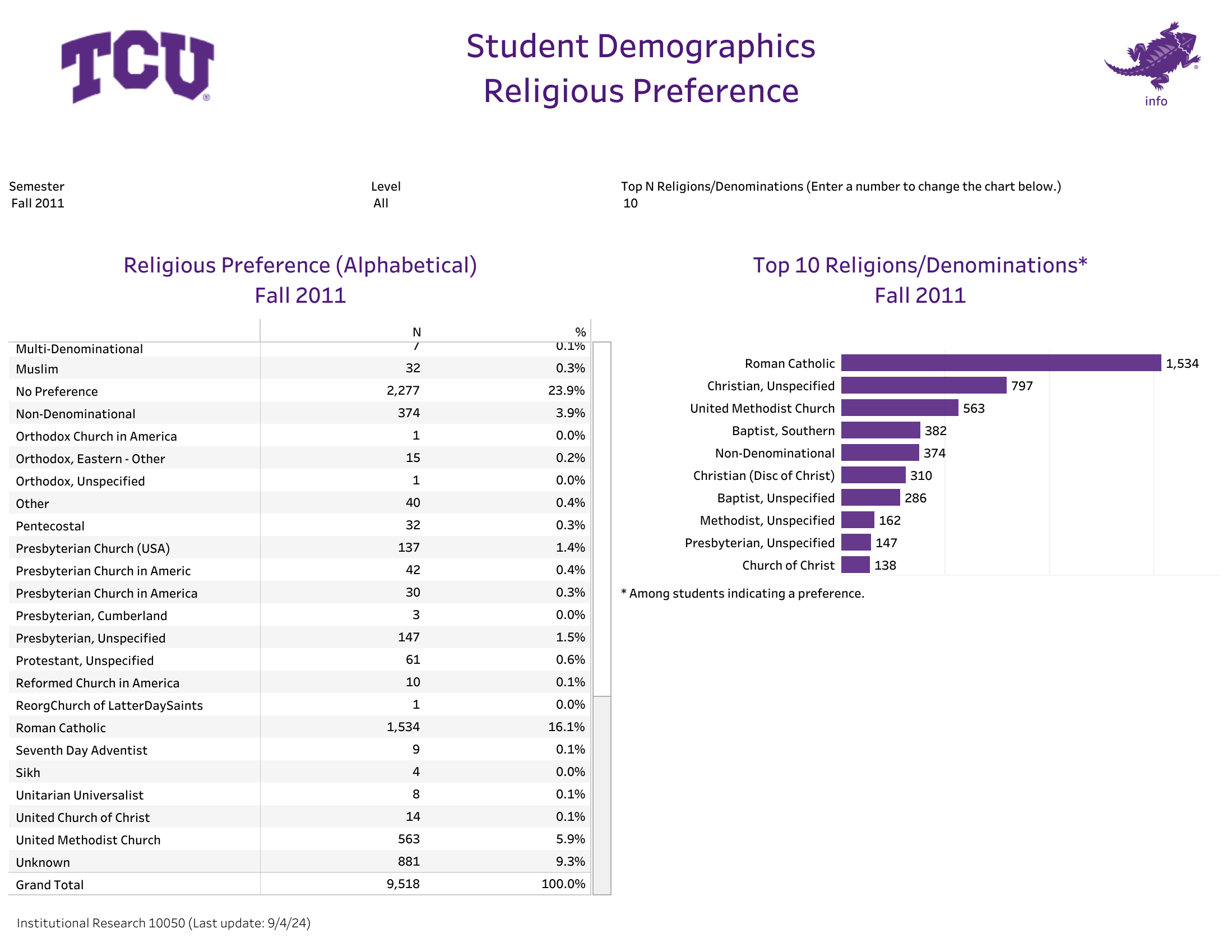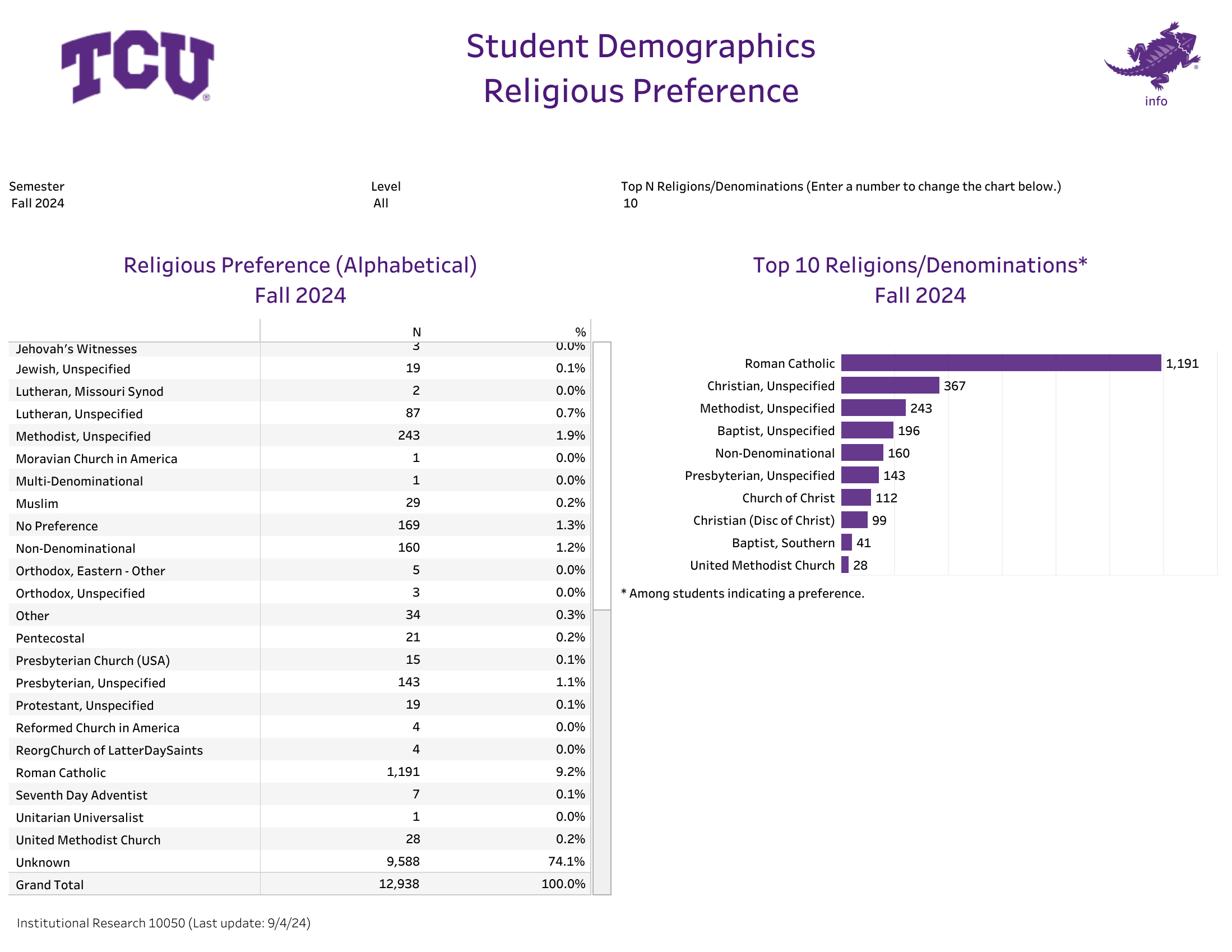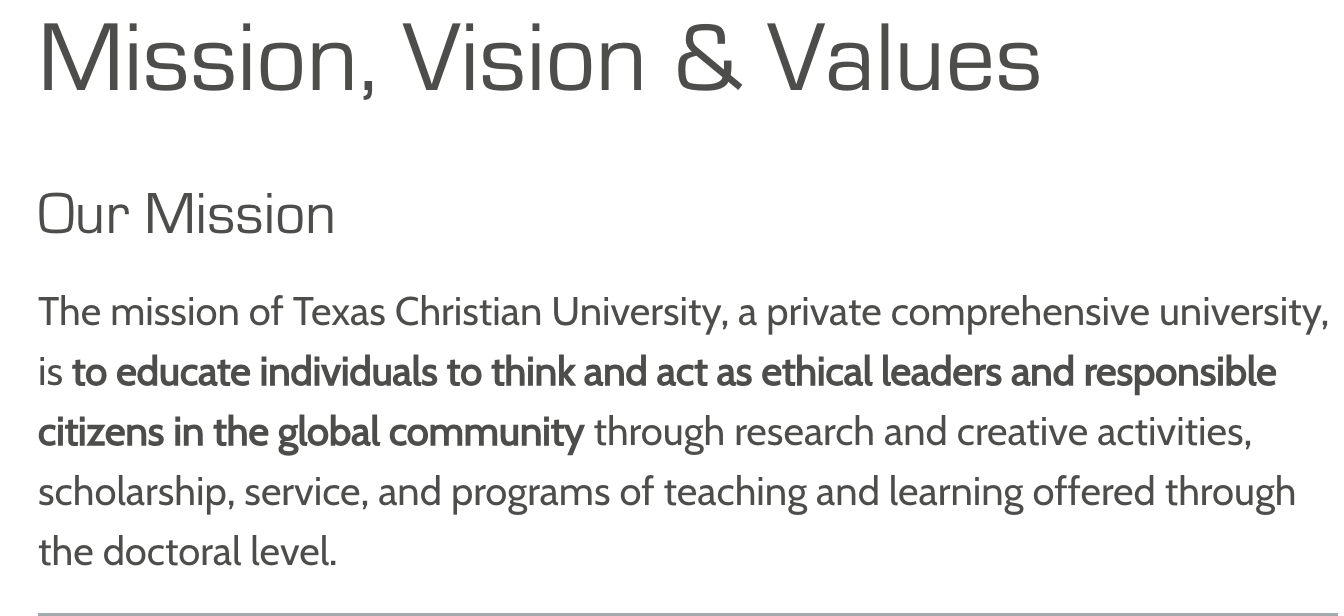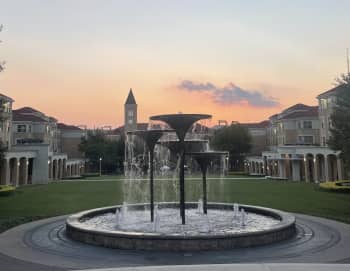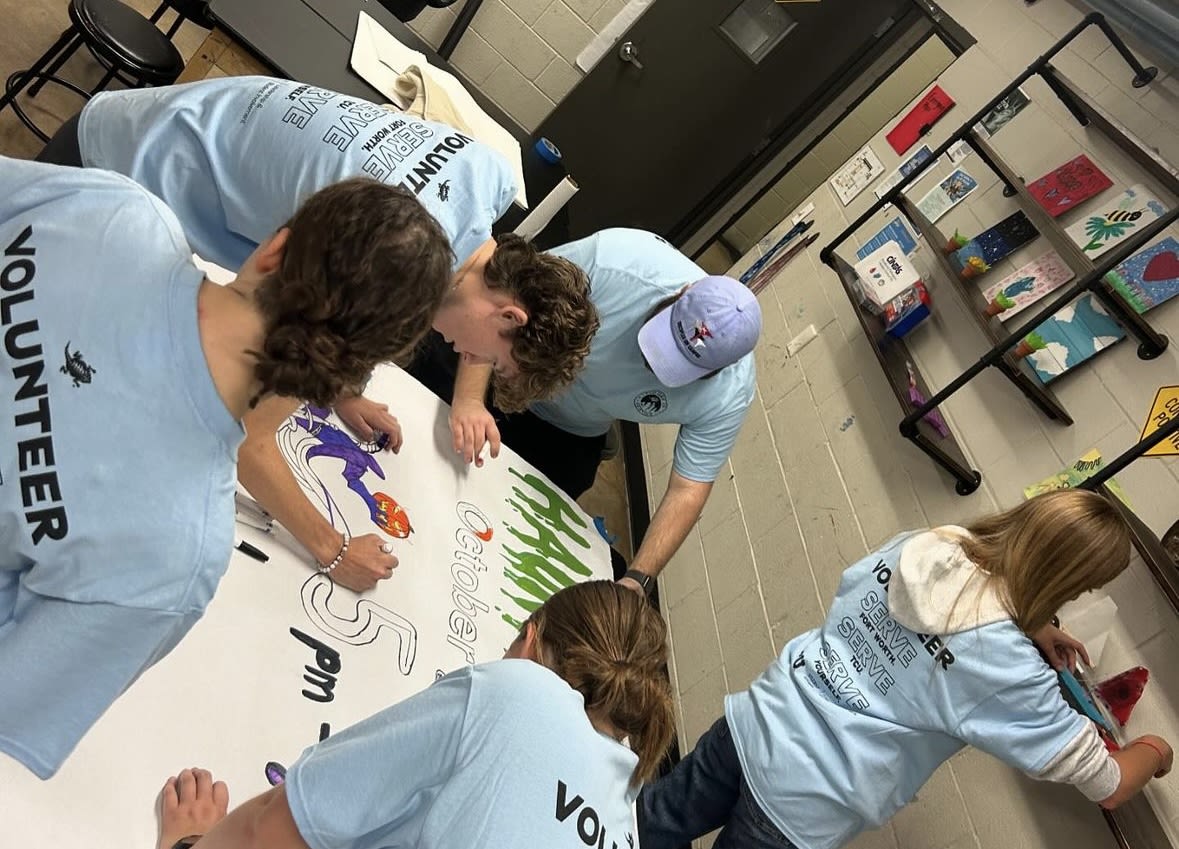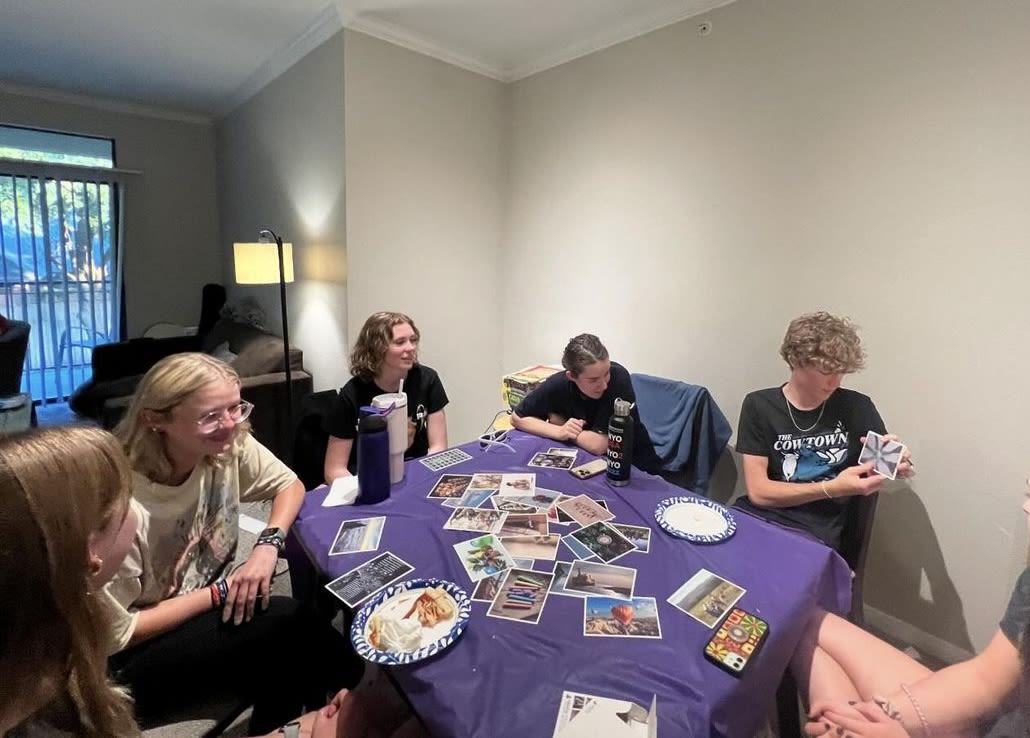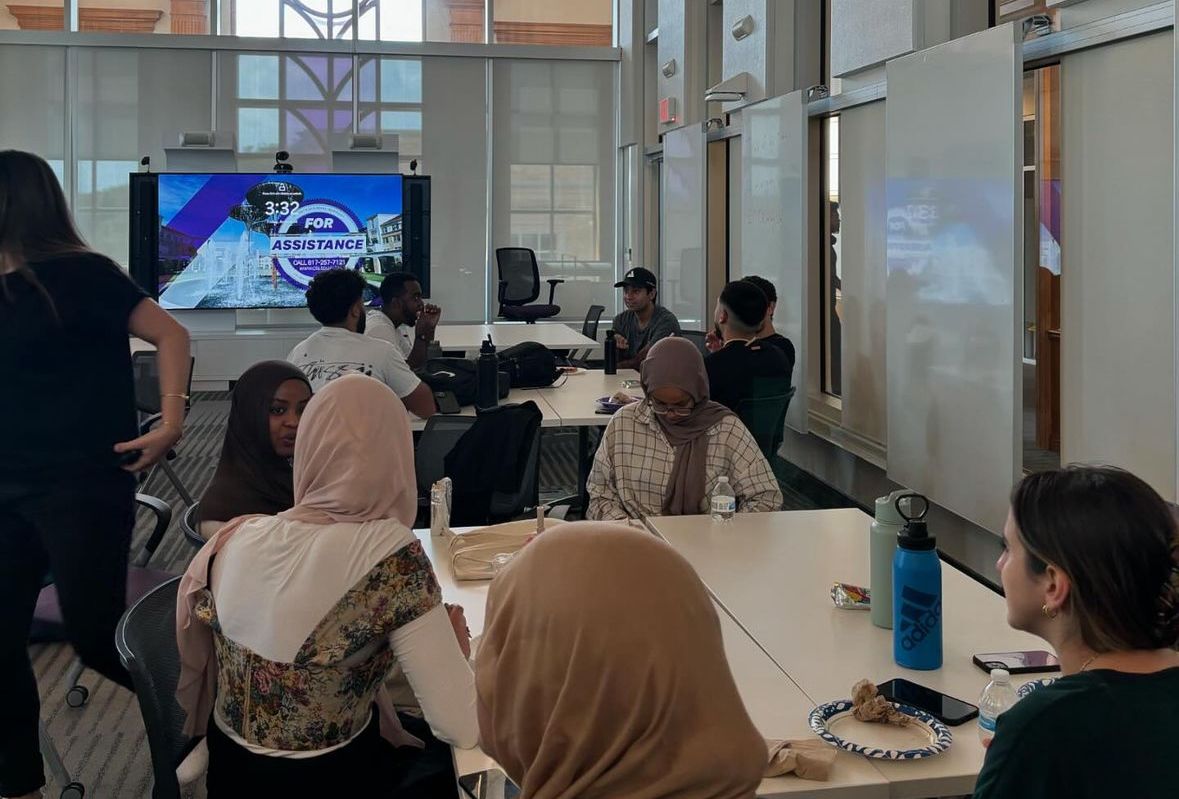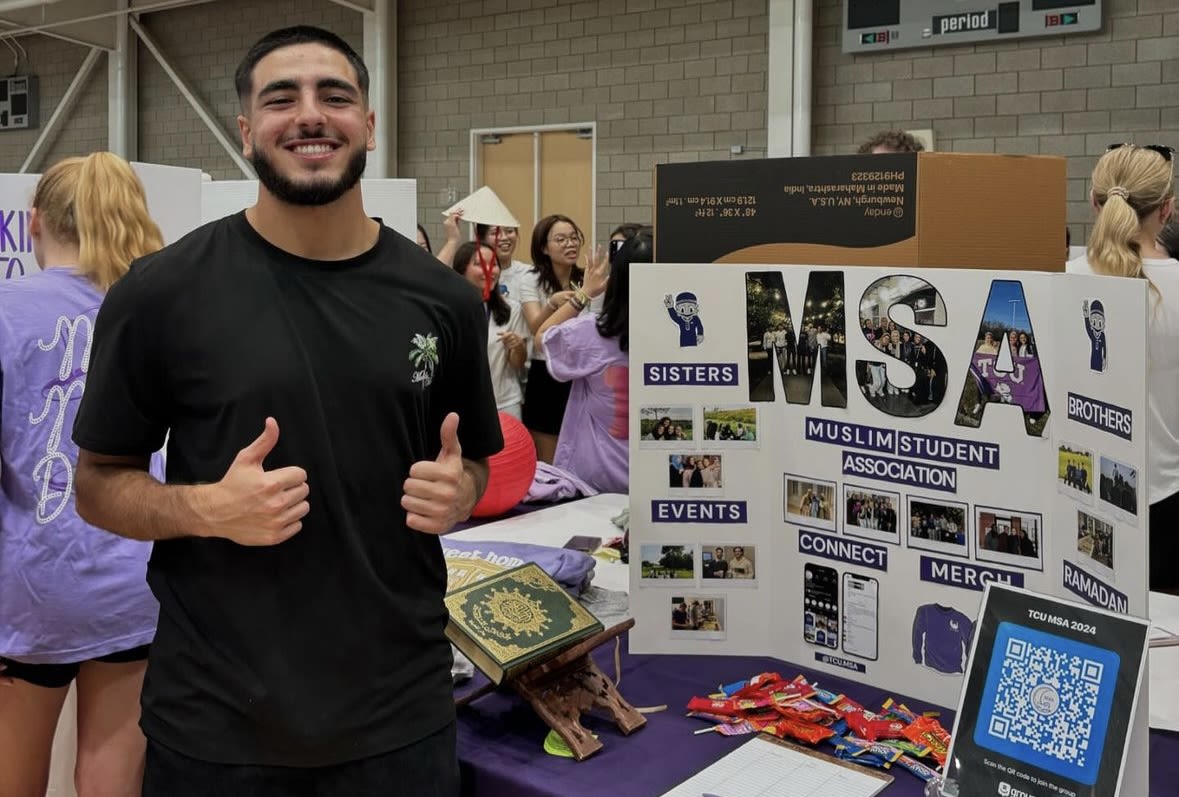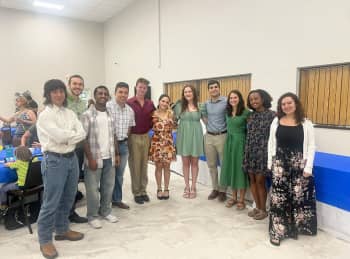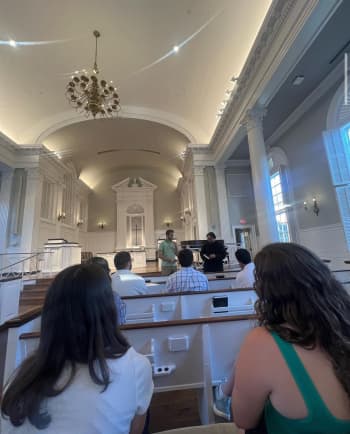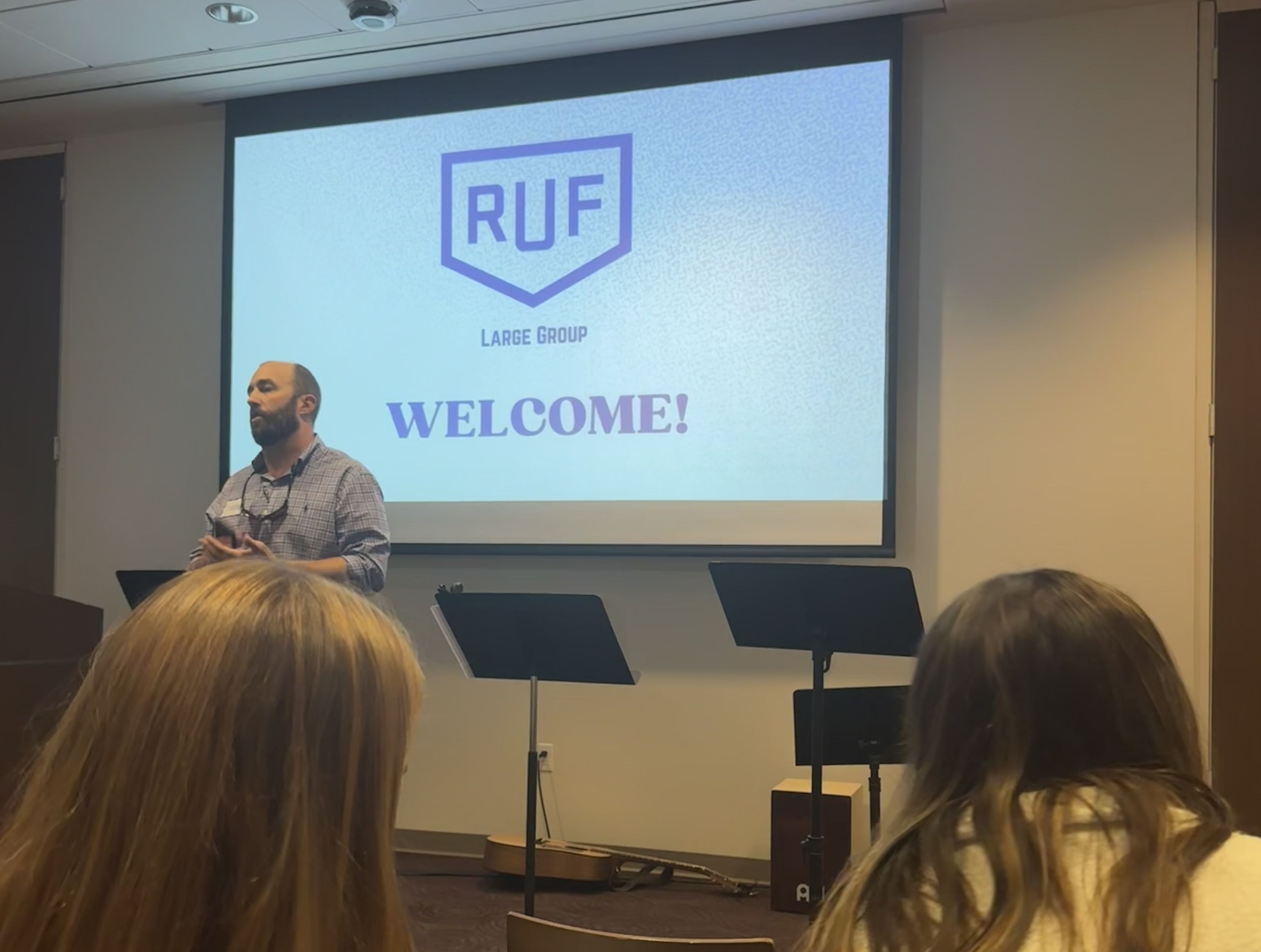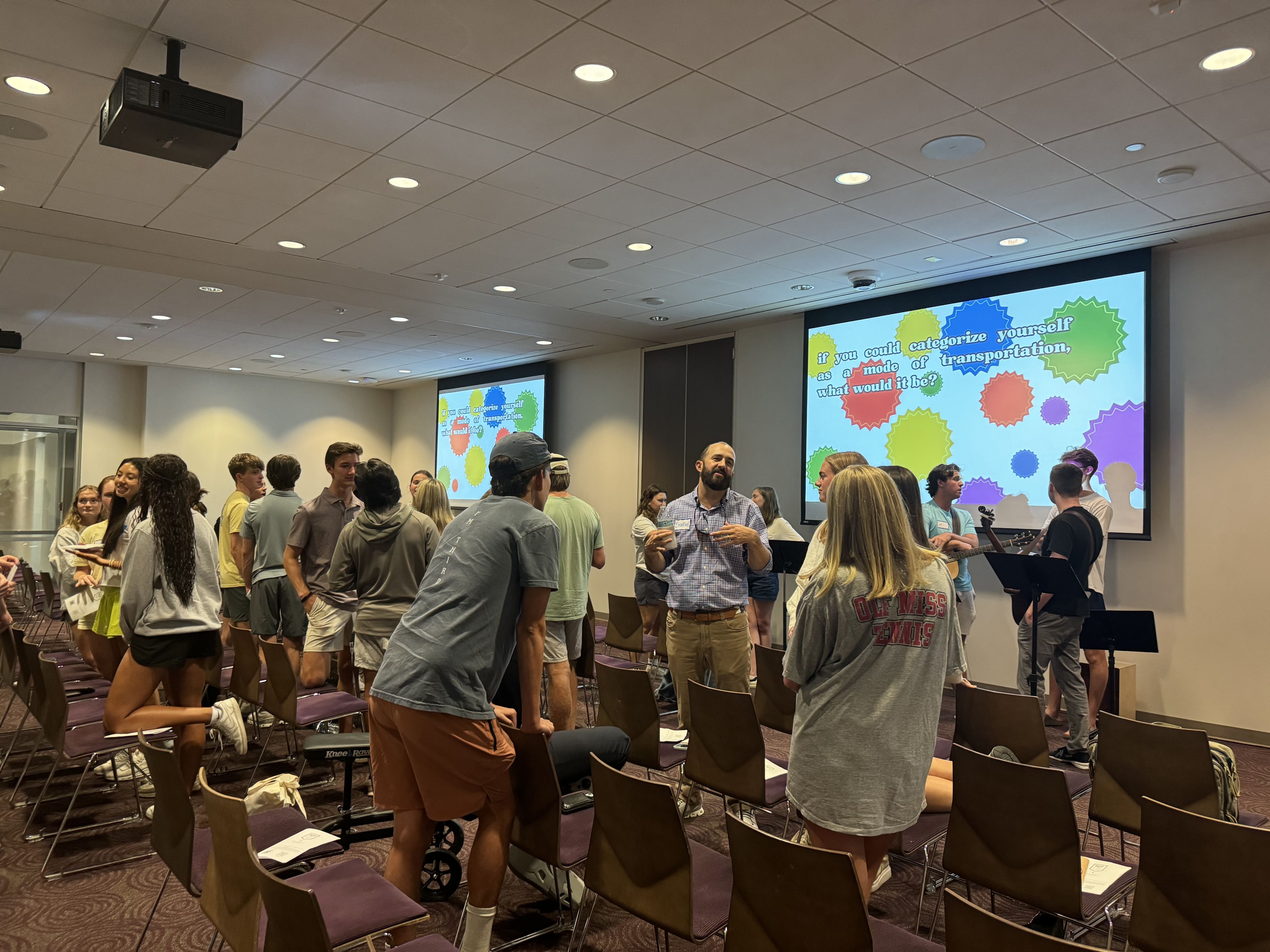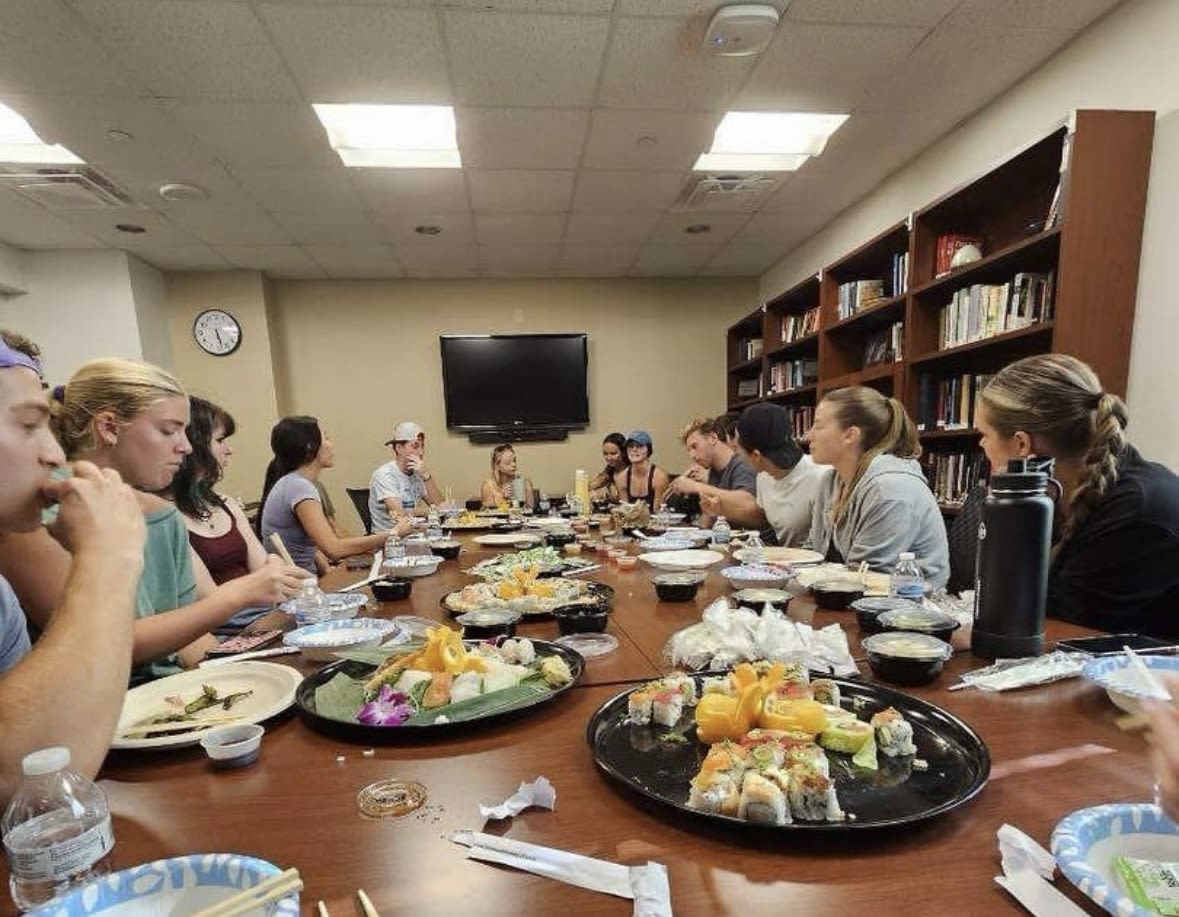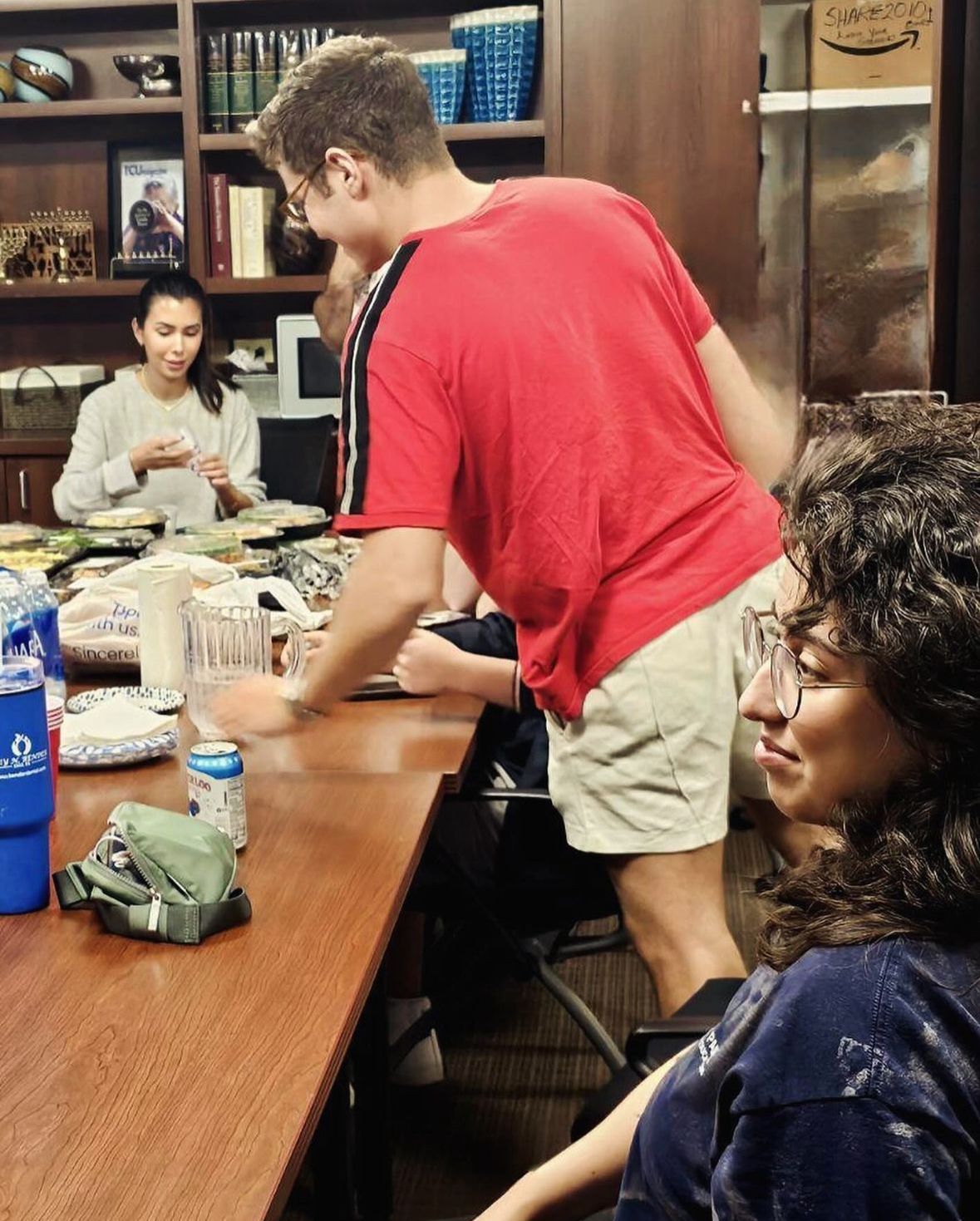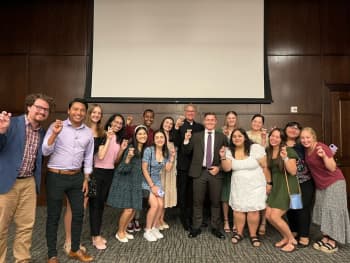How TCU worships
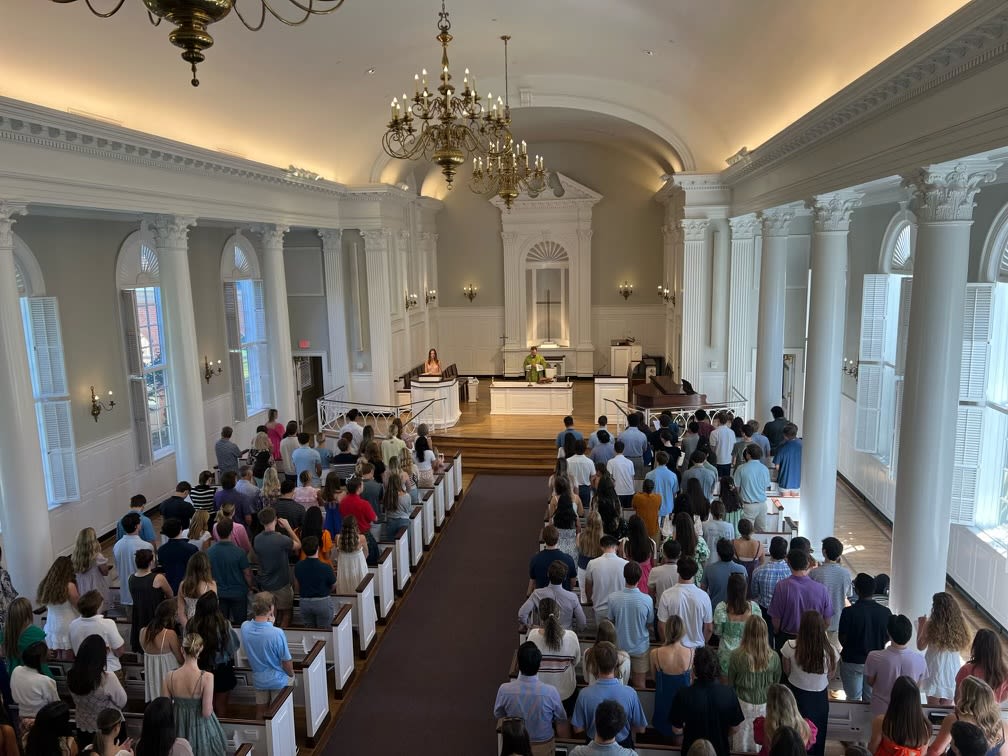
The number of Americans who are connected to religous groups has declined this century, but that hasn't deterred TCU students from building faith communities.
“Two decades ago, an average of 42% of U.S. adults attended religious services every week or nearly every week,” according to Gallup. “A decade ago, the figure fell to 38%, and it's currently at 30%.”
Those studying the decline say many Americans are not religious at all.
Catholics have seen a large decrease in attendance. So have the Orthodox and Hindu faiths.
Two groups – Muslims and Jewish Americans — have seen a slim increase in attendance over the past 20 years.
“On any given weekend, about three in 10 U.S. adults attend religious services, down from 42% two decades ago,” according to Gallup. “Church attendance will likely continue to decline in the future given younger Americans’ weaker attachment to religion.”
Many religious groups across the United States are reporting a decrease in participation (Gallup).
Many religious groups across the United States are reporting a decrease in participation (Gallup).
Within the past 13 years, TCU’s campus has seen a change in religious involvement. Overall, fewer students identify with a religion.
According to the Gallup, Catholics show one of the greater decreases in attendance. This proves to be true on TCU’s campus. While there have been a few increases over the past 13 years, the majority of religions that students identify with have seen a noticeable decrease.
The top 10 religions that TCU students identify as and how they are different in fall 2011 and fall 2024 (Isabella Tankersley).
The top 10 religions that TCU students identify as and how they are different in fall 2011 and fall 2024 (Isabella Tankersley).
Gallup Poll shows data about differences in political party religious representation. (Gallup News/Jeffery Jones)
Gallup Poll shows data about differences in political party religious representation. (Gallup News/Jeffery Jones)
Politicization of religion and its issues
Rev. Russ Peterman, Senior Pastor at University Christian church in Fort Worth, talked about how the politicization of religion has impacted a declining youth rate that identifies with a specific denomination.
“In the last 20-30 years, I believe a huge part of the decline has been the politicization of religion," Peterman said. "The religious right has co-opted what it means to be Christian, and it’s not really the true meaning of Christianity."
There is a divide by political party in terms of religious identification that has shifted over the past 25 years. In 1999, the Gallup poll illustrated that 60% of democrat voters were religious and held religious beliefs, and that number in 2023 was measured at 37%. When polled, 62% of Republicans were religious in 1999, and in 2023 was 61%.
The controversial issues of the legality of homosexual marriage and abortion have been divisive politically and caused tension within denominations, Peterman said.
“The issue of gay marriage is where we have seen churches in the same denomination take different stances, most recently with the Methodist church splitting up over this issue," Peterman said. "At University Christian Church, we label ourselves as an open table and try to be not a red or blue church, but a purple church, where we’re open to engaging in dialogue on these topics with inclusive rhetoric."
Deacon Kevin Bagley, a deacon with St. Andrew Catholic Church, said that the issue of abortion is where he’s seen people leave the Catholic faith.
“Abortion is a hot-button issue and within the Catholic Church, we stand firm on protecting life in its forms," Bagley said. "The challenge is that there is grey area like rape or incest, but it’s important we note that there are many great people who have come from a rape or incest pregnancy. We can’t judge the child based on the act, and we have to respect life. It’s an issue where we have to have discourse on."
Bagley noted that from the time of the sexual revolution of the 1960s to the present day brought a platform for different views on sexual behavior that has contributed to the shift.
“The sexual revolution of the 60s brought people into the church with outlying views on sexuality and the sanctity of life, and the issue has grown to become more divisive,” Bagley said.
In the early 1960s, pre-sexual revolution, 93% of Americans were Christian, while today only 44% are religious.
COVID and individualization
Alison Fitzgerald and Austin Schmidt, youth ministers at University Christian Church, attribute this decline in youth participating in a specific denomination within society and TCU to a shift in culture that exponentially grew post-COVID.
“Society over time has become more individualistic and the reigns put on individuals that are around the teenage group to early 20s that when they get to college there is a world of information and different viewpoints at their disposal," Fitzgerald said. "This was magnified during the pandemic when that weekly worship was taken away from people, people had a decision to make about how much of a part of their life religion and worship was going to be."
Findings from a Pew research study showed that only 6% of people ages 18-29 attend church more frequently than they did pre-pandemic.
A Pew research study shows church attendance before and after COVID-19 by age group and religion. (Pew Research)
A Pew research study shows church attendance before and after COVID-19 by age group and religion. (Pew Research)
TCU's mission statement. (TCU website)
TCU's mission statement. (TCU website)
How this affects TCU
There is a correlation between religious identification and practice between national statistics and the TCU student body. Much like the declining rate of youth nationally, TCU as an institution had a student body where almost 70% of the student body identified with a specific denomination. In 2024, roughly only 25% of students identified with a specific religion.
Peterman said he believes that while TCU aspired over the past 20-30 years to grow into a global university, there was an effort to downplay the importance of TCU’s religious identity.
“Over the last 20 to 30 years, there’s been a calculated decision made by the administration to move away from a religious identity while expanding the university into a global institution," Peterman said. "We can look toward Michael Ferrari being the first Chancellor who was a non-disciples member or things like the emphasis on having world-class athletic programs. It’s not necessarily a bad move by the school, but it was calculated."
TCU has made efforts to hold onto its religious identity through its accepting funding from the Disciples of Christ Church and its support of the Disciples, it’s also made decisions to remove words like "Christian principles" and "God" from its mission statement.
On TCU’s campus, there are more than 20 religious organizations that students can join. Students can find these groups on TCU's Religious and Spiritual Life page. From Baptist to Jewish, the religious groups serve students from all different backgrounds, providing a community away from home.
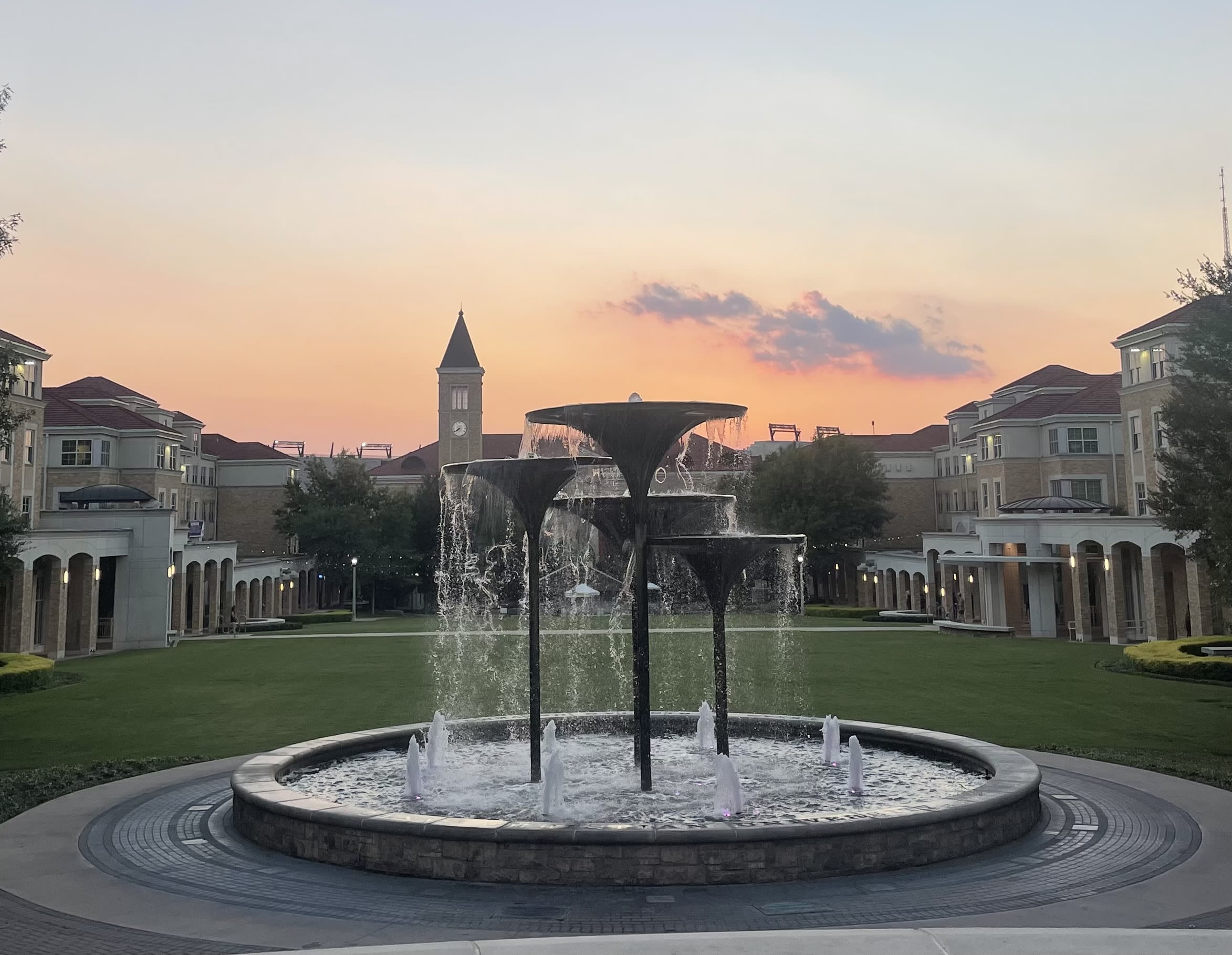



University Christian Church
University Christian Church encourages all students to join them and to come with their questions and doubts.
UCC is affiliated with the Christian Church (Disciples of Christ), the denomination on which TCU was founded, and is located next to the north side of TCU’s campus.
Rev. Russ Peterman is the Senior Minister at UCC and has served there for seven years. He says that it is normal for college students to pull away from religion.
“You have a lot going on and your parents cannot make you go anymore, being a student is time-consuming and it is a time of questioning,” Peterman said. “We are different at UCC because we put an emphasis on reaching out to students and as a result, we have seen a huge increase in student participation.”
UCC created a position two years ago specifically for college ministry, hoping to offer a space dedicated specifically to TCU’s college students. Rev. Austin Schmidt fills this role.
“We really wanted to open the building and communication lines to know how we can support students,” Schmidt said.
They promote themselves and gain college student members through social media, yard sign campaigns and word of mouth.
Their approach on religion caters to college students because they lean into curiosity.
“We do not give people easy answers to hard questions,” Peterman said. “This approach means we figure out answers together and meet students where they are.”
Besides curiosity, their other core values are vulnerability, discipleship, generosity, compassion and inclusivity.
They offer numerous events a month specifically for college students. These include a Sunday morning worship, a weekly lunch called “Lunch Bunch," a small group ministry and a monthly dinner for queer students.
All of these events are meant to show love and support to college students, teaching them that they are not alone in life or in their faith journey.
“UCC’s approach to Christianity is that it is a journey that is not just one straight path,” Peterman said. “It is about open minds and loving hearts because our faith is always evolving and it is important to be open to thinking differently and others who do so.”

TCU Disciples on Campus
DOC participates in events to serve others while enjoying time together (Noah Tennant).
DOC participates in events to serve others while enjoying time together (Noah Tennant).
Disciples on Campus is a campus ministry committed to principles of community, justice, joy and inclusion, specifically welcoming LGBTQ+ students.
DOC is also associated with the Christian Church (Disciples of Christ). TCU’s denominational branch is the largest among all college campuses, according to TCU's Religious and Spiritual Life.
“We offer every student a seat at the table,” Ruston Farrington, a senior accounting major, said. “Not every Christian person thinks the same and not every nonreligious person does either. DOC offers a nonjudgmental community to all.”
Farrington is the Community and Inclusion Chair for DOC. In his role, he hosts a small group called Refuge, which is a nonreligious group that is meant to be a safe space.
DOC hosts many other events to keep students engaged and to help them feel connected to other students like them. They also host a Monday Funday where students can hang out and relax, a weekly Bible study called Stories in Scripture and a weekly event called The Table where first-years have dinner together.
DOC hosts The Table every Monday for first-year students to talk about the highs and lows of college (Noah Tennant).
DOC hosts The Table every Monday for first-year students to talk about the highs and lows of college (Noah Tennant).
“We have 51 members in our GroupMe and we have about fifteen members at every event,” Noah Tennant, a senior accounting major, said. “We have about 20-25 different students who come to an event at least once a month.”
This organization has grown significantly over the past two years after shifting its focus towards justice and inclusion. To make this shift, they implemented four pillars of community, inclusion, justice and joy. They also created a social justice chair.
DOC partners with other organizations to continue to uplift the LGBTQ+ community and participates in LGBTQ+ 101 training.
They hope to create an environment where everyone feels welcome and supported.
“Wherever a student may be in their faith or spiritual journey, there is a place for them at DOC,” Farrington said.
TCU Muslim Student Association
TCU Muslim Student Association is an intimate group that hosts events on campus and collaborates with the Fort Worth community.
MSA is present on college campuses all over the world and aims to support Muslim students by bringing them together and providing a space where they can practice their faith.
“To expand our reach through the Fort Worth community we collaborate with the local mosque, participate in community service projects or host events,” Sara Sharif, a junior neuroscience major, said. “Social media platforms and collaboration with other MSA’s also help broaden our audience and encourage engagement beyond campus.”
Their preferred form of social media is Instagram.
MSA has about 35 active members who regularly attend their events. While the majority of their members are Muslim, students that are not Muslim still participate. Particularly during their Ramadan events, Christian and Hindu students will partake in the festivities.
“We have weekly lectures every Friday given by one of our own Islamic scholars where we pray together,” Ferdous Isak, a junior biology major, said. “Besides that, we have events every two weeks where we mainly socialize with each other.”
MSA has not grown much in size over the years but they have grown in impact and outreach.
“Our social activities such as picnics and game nights allow us to portray the communal aspect of Islam, and show those who are unfamiliar with Islam that we are not entirely different,” Sammy Asaad, a senior biology major, said.
TCU Orthodox Christian Fellowship
TCU Orthodox Christian Fellowship was started two years ago and has since grown immensely.
Mihali Cosse, a junior philosophy and economics double major, started OCF with Mark Sayegh, a junior biochemistry major, in the spring of 2023.
“Our organization started with a group of four students who decided they wanted to give each other rides to church,” Cosse said. “We now have around 35 active members, which is exceptional given our numbers when we started.”
Not all of the members are Orthodox, but most are. There are regular OCF attendees who are searching for a religion or interested in the Orthodox faith.
OCF meets often throughout the semester, gathering at least four times a week. The group goes to Church off campus twice a week and on campus once a week. They host a Fellowship event weekly where the group can do something a little different.
“Fellowship events are fun and we go to Cidercade, Top Golf, have a movie night, mini golf or other enjoyable activities,” Sayegh said.
Daniel Ingram joined OCF after converting to Orthodoxy.
“It is good to have a community of people who ground you, slow you down and bring you closer to God,” Ingram, a junior mechanical engineering major, said.
This group keeps a more casual atmosphere, focusing on fellowship not just through going to Church together, but by playing games and participating in fun group activities. All the while, they keep their faith central and grow together.
“This organization is a family,” Cosse said. “We all support and pick each other up when we fall.”
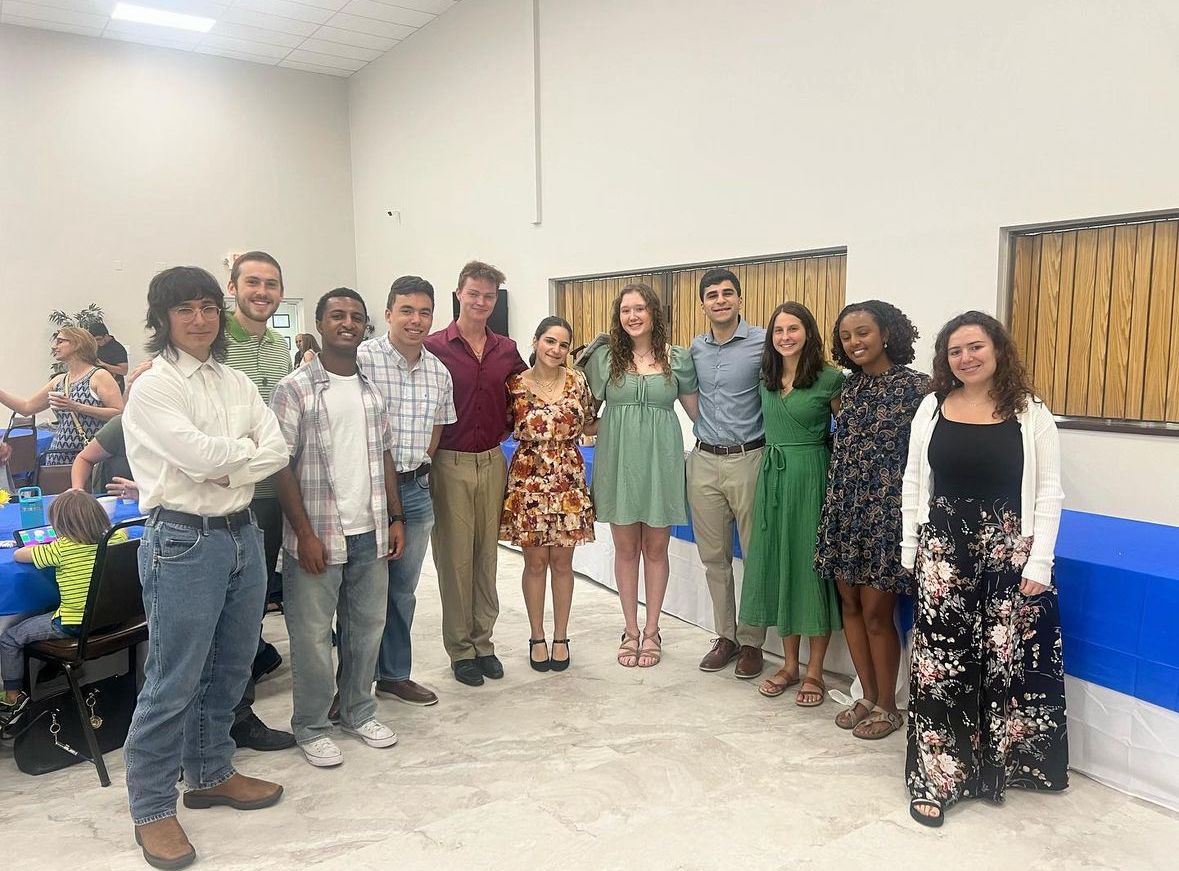
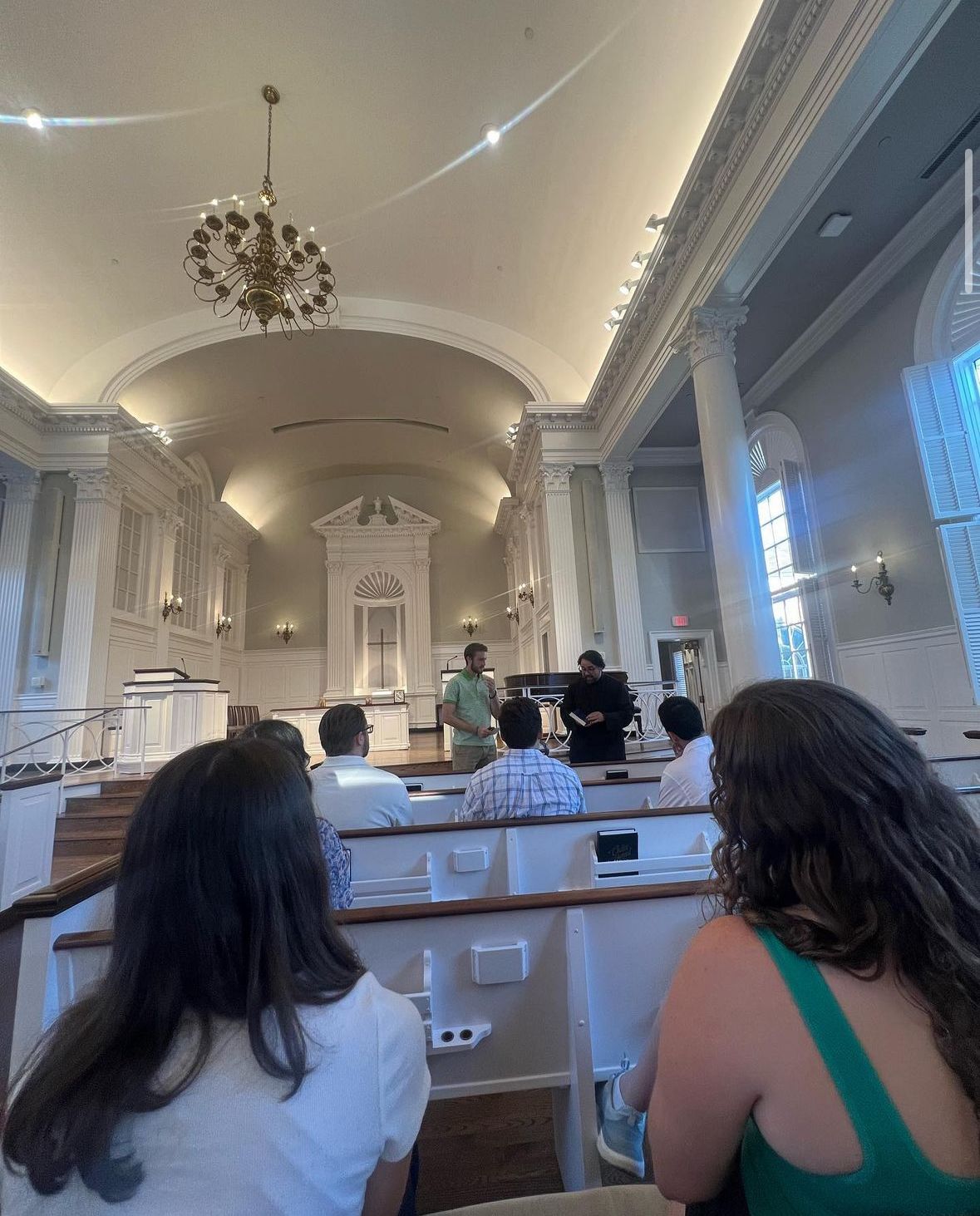
TCU Reformed University Fellowship
TCU RUF welcomes people from all backgrounds and religions to join them for their events (Isabella Tankersley).
TCU RUF welcomes people from all backgrounds and religions to join them for their events (Isabella Tankersley).
TCU Reformed University Fellowship is open to all students on campus as it provides a home away from home while bringing members closer to Christ.
TCU RUF has been on campus since 1998 and they just celebrated their 25th anniversary last year. They are a ministry branch of the Presbyterian Church in America, which is present on about 175 college campuses throughout the United States.
“RUF is for any TCU undergraduate students regardless of their spiritual background,” Rev. Bradford Green said. “We like to say it’s for ‘the convinced and the unconvinced.'”
RUF on college campuses across the nation use the same theology, but each has its own unique way of going about things.
Every week TCU RUF meets for their Large Group, which is a casual worship night. They also host a social event almost every month like pickleball or brunch. About 50 students show up for these activities.
RUF hosts a Wednesday worship night filled with Scripture, singing, and fun games (Isabella Tankersley).
RUF hosts a Wednesday worship night filled with Scripture, singing, and fun games (Isabella Tankersley).
These active members have the opportunity to learn more about Jesus while making new friends on campus that share the same values as them.
“RUF is a Christian campus ministry that seeks to reach students for Christ and equip them to serve others on campus and in their lives,” Amy Wood, a part-time campus staff with TCU RUF, said. “We explore who Jesus is and what the Bible says about our relationships with the campus and each other.”
Students seek out this organization because of the community it builds with those around them and God.
“The fellowship keeps me coming back every week,” Jessica Heist, a senior early childhood education major, said. “Not only do I feel connected and loved, but it is so cool to experience the love that God has for us through the friendships I have made through RUF.”
TCU Catholic
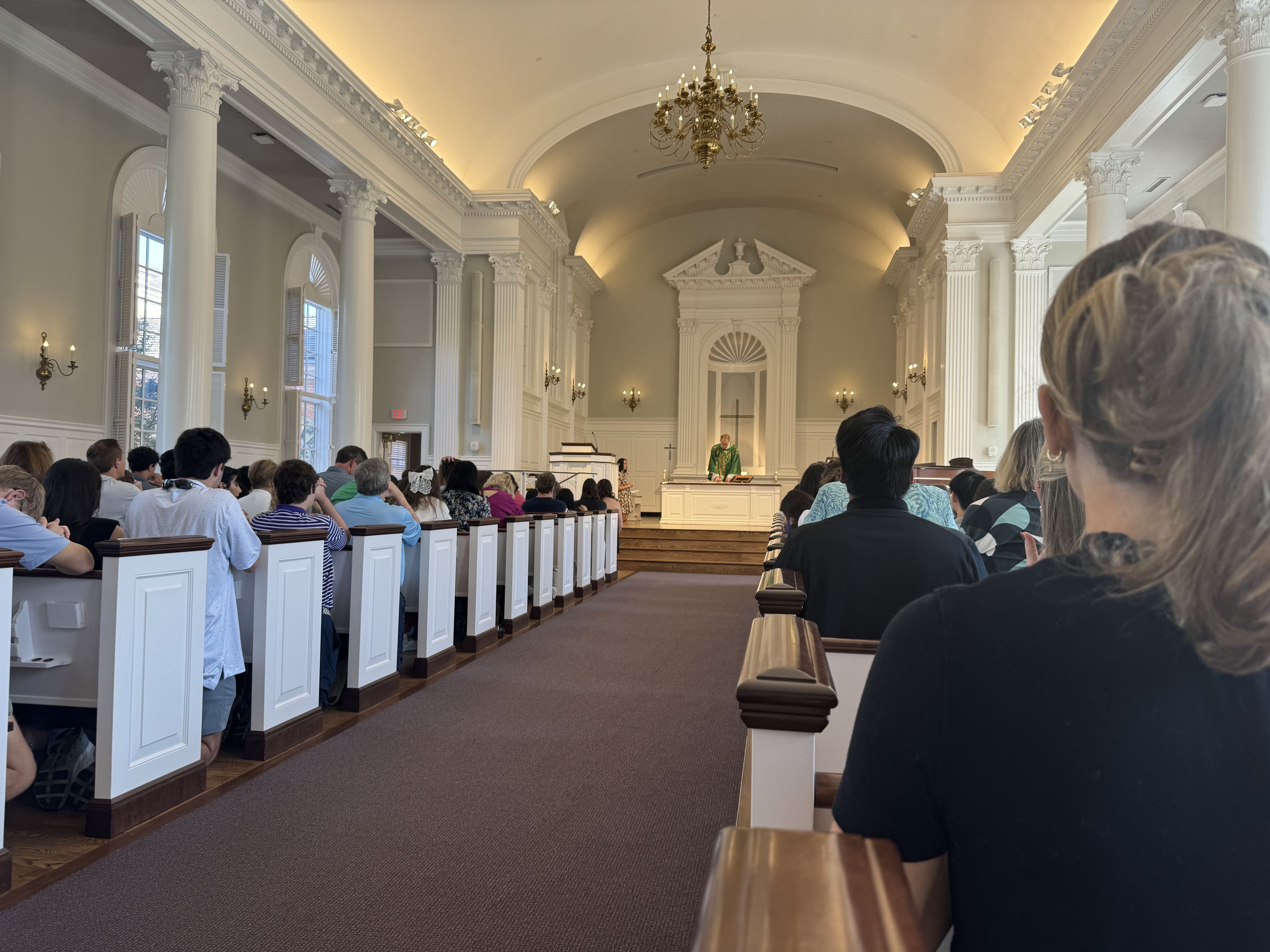
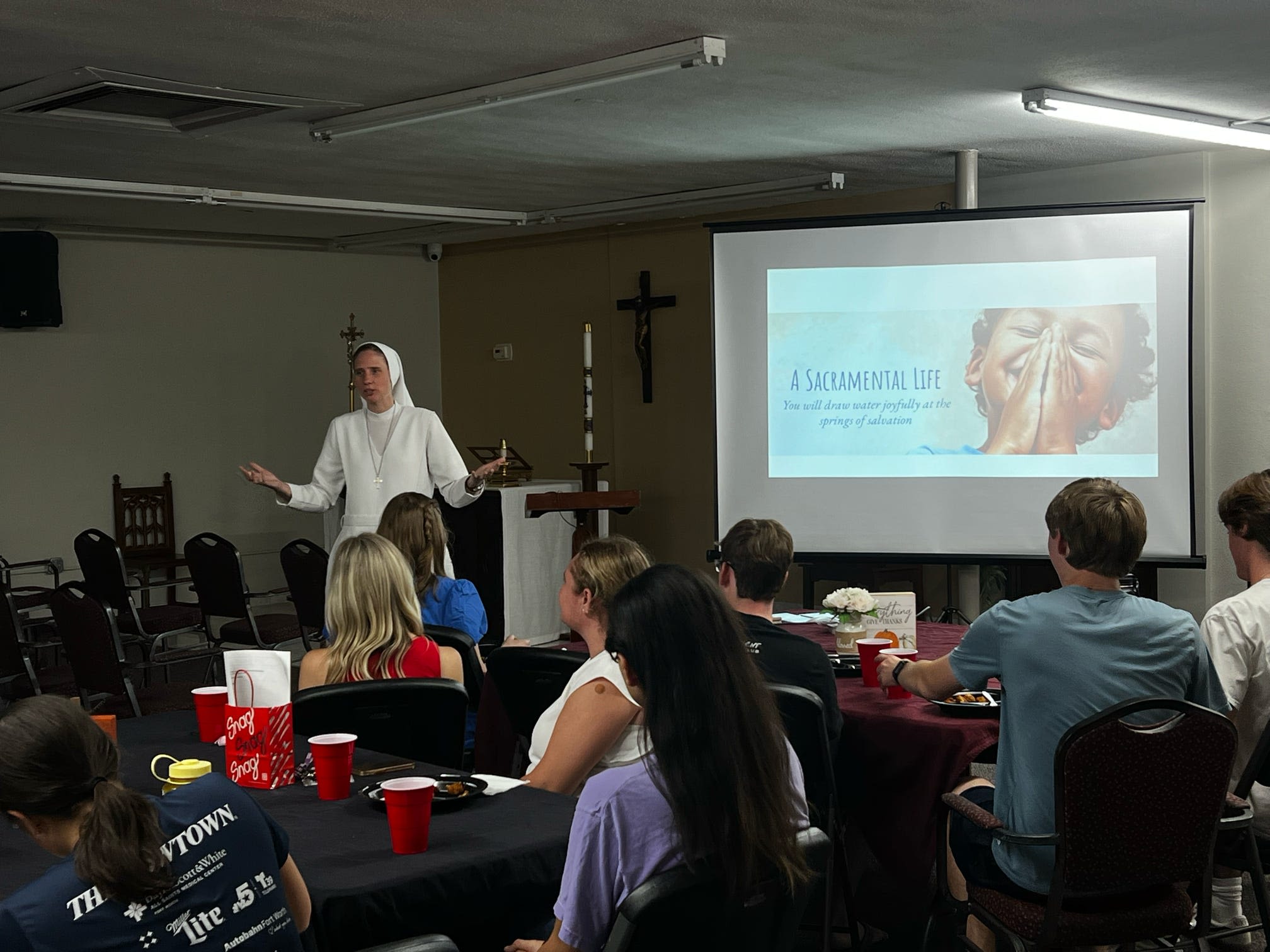
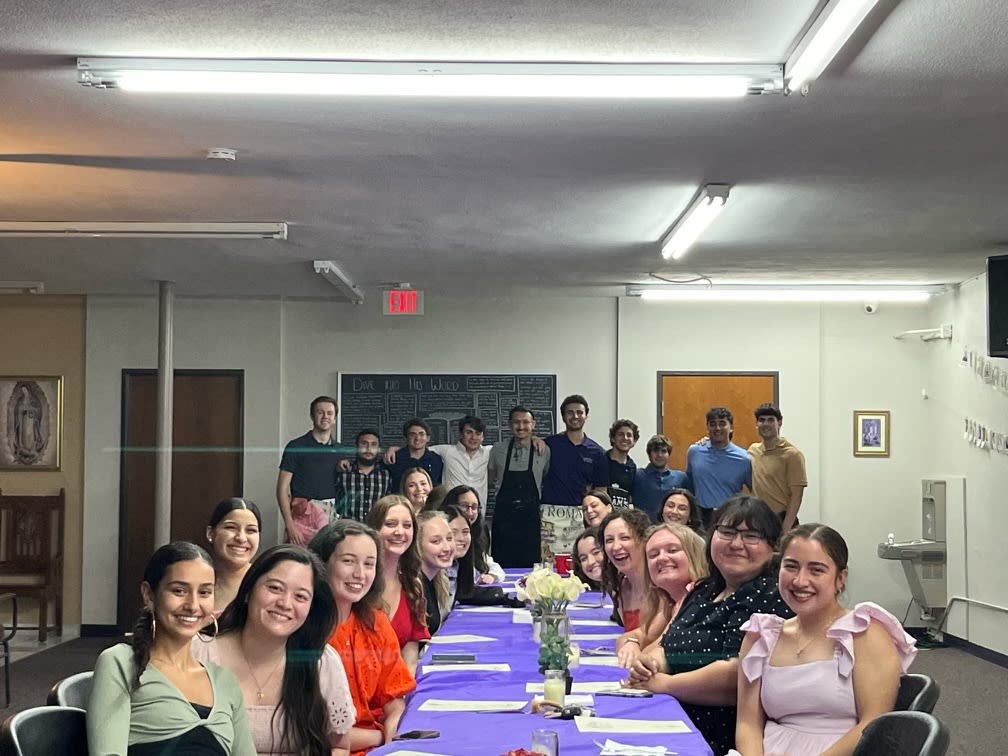
TCU Catholic offers numerous events every week to cater to its large number of student participants.
Catholicism is the most common religious preference on TCU’s campus and TCU Catholic has 545 active members. About 300 members attend mass weekly, and about 50 students attend Newman Night.
“TCU Catholic is an outreach of the Catholic Diocese of Fort Worth dedicated to the students, faculty, staff and their families of Texas Christian University,” Catherine Zickert, the campus minister, said. “We strive for all students to find rest and a family to walk with on their journey to becoming who God created them to be.”
This organization is mostly student led as they have nine committees run by students. The committees are focused on outreach, the Mass and planning events for first-years.
They host numerous events throughout the week to cater to different audiences. These include men’s and women’s fellowship groups. They also host a Newman night on Wednesday evenings which consists of dinner, a guest speaker and a breakout session.
“On Sundays, our schedule is packed,” Zickert said. “We offer two Catholic Masses, one at 11 a.m. in Robert Carr Chapel, and the other at 5 p.m at the Newman Center. We also offer Confession from 9-10 a.m. and Adoration from 7-8 p.m.”
While the organization caters to Catholics, everyone is welcome to join and they have many active members that are not Catholic.
Over recent years, the organization have grown in impact through the men’s and women’s ministries they offer. These groups allow for a more supportive environment that promotes spiritual growth.
“Being able to have people that share your same beliefs and understanding of faith means everything to me,” Joey Bonfiglio, a senior marketing major, said. “The Newman Center has changed my life in ways I never expected it to and has brought me so much closer to the faith.”
TCU Hillel
TCU Hillel gathers for a sushi night event in Jarvis Hall (Gabby Sandberg).
TCU Hillel gathers for a sushi night event in Jarvis Hall (Gabby Sandberg).
Members spend time together by meeting multiple times a month (Lily May Holland).
Members spend time together by meeting multiple times a month (Lily May Holland).
TCU Hillel may seem like a small group with just 18 members, but they have built a strong community and have grown tremendously in the past year.
TCU Hillel is a Jewish organization on campus that is associated with Hillel, an international Jewish student organization. According to their website, over 180,000 college students participate in Hillel.
“Last year we had about six or eight active members but this year we have about 18,” Gabby Sandberg, a junior finance major, said. “We have seen this growth because we have a new faculty adviser and because we invest more in new students and building relationships with them.”
The group meets three to four times a month. Some of these events include a Shabbat, dinners, religious events and executive board meetings.
They post on their Instagram every month to inform students of upcoming events.
“We attract more students through networking and reaching out to Jewish students,” Lily May Holland, a sophomore child development major, said. “Myself and other members will reach out to freshmen or people we know are Jewish and take them out to coffee or lunch to talk about the opportunities they have through Hillel.”
Holland says she thinks that TCU Hillel has almost three times as many members as last year because of the relationships that returning members have built with newcomers.
Hillel wants to build a community that uplifts Jewish students and makes them feel supported.
“We create an inclusive environment by being there for all Jewish students,” Holland said. “It is so special to be a part of such a small Jewish group that I know I can always come back to.”
.
.
.
Students interested in joining a religious group on campus can visit TCU's Religious and Spiritual Life page.
Those interested can fill out an interest form on this website and explore the various existing organizations.
Each group offers a unique way for members to worship, serve, engage in fellowship and make new connections. All TCU students are invited to participate.
